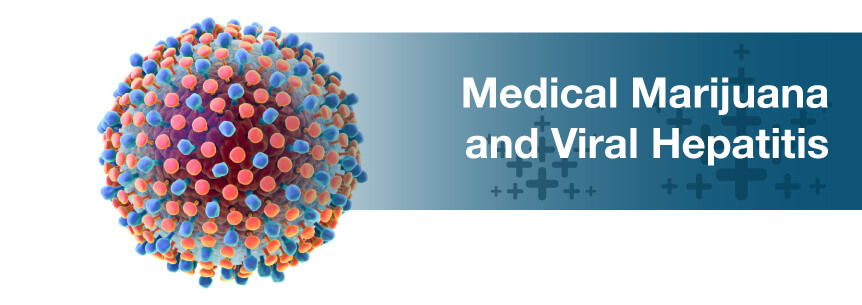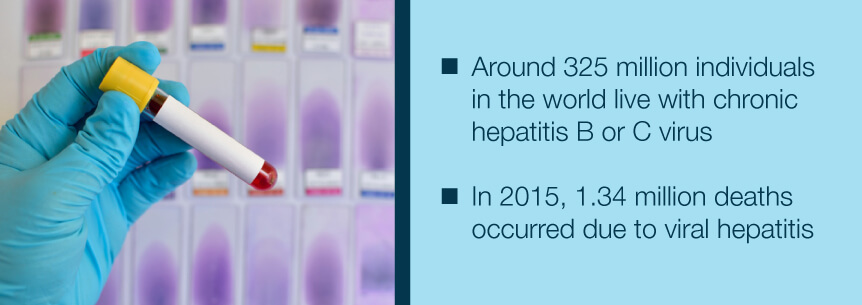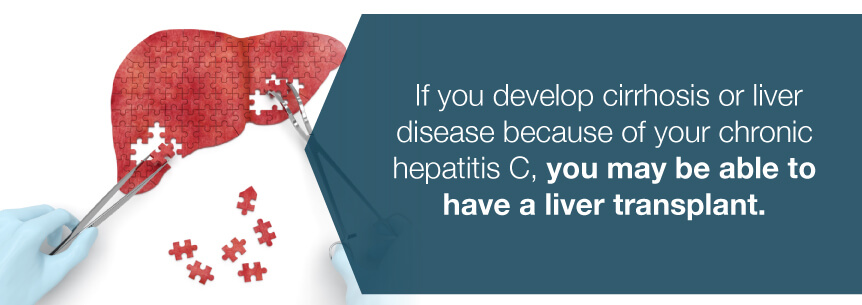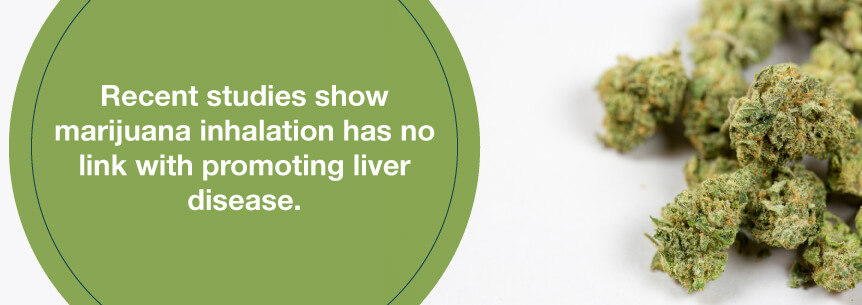
Many people wonder if medical cannabis can offer viral hepatitis patients hope, and research suggests it can. Not only can using medical marijuana for viral hepatitis treatment keep patients more compliant with their medications, but the cannabinoids in the herb may also offer therapeutic properties to combat liver inflammation, a common side effect of viral hepatitis.
Viral hepatitis is a type of infection that causes damage and inflammation to the liver. Numerous viruses cause hepatitis, including hepatitis A through E. Hepatitis A and E can lead to acute infections, while hepatitis B, C and D can produce both acute and chronic diseases.
Hepatitis causes damage to your liver and may also lead to cirrhosis, or liver scarring. Cirrhosis can lead to liver failure, liver cancer and even death.
The three most common viral hepatitis types in the U.S. are:
Other types of viral hepatitis include:
Viral hepatitis has a history dating back thousands of years. The first human infections caused a repetitive, natural cycle with the capability of infecting billions of other people and wiping out the population with ramifications being thousands of lives.
China had reports of jaundice outbreak epidemics around 5000 years ago, and so did Babylon more than 2500 years ago. The destructive history of these pandemics and epidemics are well known and is associated with significant wars.
Researchers identified viral hepatitis in the 20th century, with hepatitis B being the first discovered.
According to estimates by the World Health Organization (WHO):

Common symptoms of viral hepatitis include:
Those newly infected have more chances of experiencing one or more of these symptoms. However, no everyone has symptoms of viral hepatitis. Symptoms usually occur with new hepatitis A viruses, but many individuals with new hepatitis B or C don’t experience any warning signs.
Regardless of whether you have symptoms, your doctor can perform specific blood tests to see if you have hepatitis. If you suspect you have the virus, it’s essential to have your doctor screen you since individuals with chronic hepatitis B or C tend not to develop any symptoms until they already have damage to their liver.
Acute hepatitis may present severe but rare complications, including:
Fulminant hepatitis — or liver failure — with gastrointestinal tract bleeding and hepatic encephalopathy — brain damage — is also quite rare. In some cases, hepatitis B or C in the acute phase is more extended, but milder and takes up to a year to recover. Around five to 10 percent of patients living with a longer acute phase end up developing chronic hepatitis.
Hepatitis B with chronic infection can affect quality of life profoundly. Interferon and other medications commonly prescribed for treating chronic hepatitis B can even cause depression as one of its side effects, which could be why more than 50 percent of patients with hepatitis C are also struggling with depression.

Since there’s a close link between drug use and hepatitis C, you may feel as if people are judging you and this stigma could be to blame for feeling depressed. Others who don’t have much knowledge about hepatitis C may worry they’ll get the infection and keep their distance. Because of this, you may feel embarrassed or ashamed.
If you have been diagnosed with a chronic condition, use drugs, are out of work or don’t have a reliable support system, you could begin to feel depressed. But regardless of the reason, hepatitis C has a high prevalence of both depression and anxiety. Often, these mental health conditions are overshadowed by the physical diagnosis of hepatitis, causing them to go undetected and untreated.
The recommended treatment method for hepatitis depends on the type of viral hepatitis a patient has, as well as whether it’s acute or chronic.
Patients with hepatitis A usually don’t need treatment since it’s a short-term ailment. Your doctor may recommend bed rest if you’re experiencing discomfort from your symptoms. If you’re vomiting or have diarrhea, your doctor will give you instructions for proper nutrition and hydration.
The vaccine for hepatitis A can help prevent you from getting this infection. There’s a vaccine for kids between 12 and 18 months old, which comes in a two-vaccine series. Adults also have access to a vaccine doctors can combine the vaccine for hepatitis B.
There’s no specific treatment for acute hepatitis B. Doctors prescribe Interferon and other antiviral medications to treat chronic hepatitis B. Antiviral medicine can be expensive since you need to continue using it for a few months or years. You will also require routine medical monitoring and evaluations for chronic hepatitis B, so the doctor can determine if your illness is responding to treatment.
Vaccination can prevent hepatitis B, which is why all newborns should get the hepatitis B vaccination. Medical and healthcare personnel should also receive the vaccine. Interferons often come with side effects that include:
These medications may also cause mental problems or make existing ones worse.
Antiviral medicines treat both chronic and acute hepatitis C. Your doctor may give you a combination of different antiviral medications. If you develop cirrhosis or liver disease because of your chronic hepatitis C, you may be able to have a liver transplant.

No vaccination is available at the moment for hepatitis C.
No antiviral medicines are available at this time to treat hepatitis D. There is a medication called alpha interferon doctors use to treat this virus. In a study, it showed 25 to 30 percent of patients who took it showed improvement. However, you may be able to prevent hepatitis D by receiving the hepatitis B vaccination since you need to have the hepatitis B infection to develop hepatitis D.
Side effects of alpha interferon may include:
Presently, no specific treatments are available to treat this virus. Since it’s often an acute infection, it tends to get better on its own. Doctors often advise individuals with hepatitis E to drink lots of fluid, get enough sleep, avoid alcohol and get enough nutrients. They will also carefully monitor pregnant women who develop hepatitis E.
While nothing can completely protect you from all types of viral hepatitis, there are some precautions you can take to lower your risk of contracting the infection, such as:
Although older studies have warned that using marijuana when you have hepatitis C may impact the liver adversely, recent studies show marijuana inhalation has no link with promoting liver disease in patients with the infection. In fact, in some cases, it even protects against steatosis.

It can take many months of antiviral therapy to ward-off a severe infection, which is why many patients don’t stay compliant with their medication and are either inconsistent with it or stop it altogether. However, one study in 2006 showed patients with viral hepatitis who were also marijuana users were more likely to stay compliant with their antiviral therapy treatment.
When doctors prescribe interferon to patients, the primary treatment for patients with hepatitis, it is known to amplify their flu-like symptoms. Therefore, it comes as no surprise why many patients turn to medical cannabis for viral hepatitis to find relief. Using marijuana along with your viral hepatitis treatment can help lessen treatment-related adverse side effects.
For those undergoing antiviral therapy, the herb’s strong appetite-stimulating, nausea-reducing and chronic pain-relieving qualities can enhance their quality of life significantly. When you have hepatitis C, it’s more important than ever to stay compliant with your antiviral treatment — if you don’t, it can damage your liver permanently.
The treatment interferon for chronic hepatitis C often exaggerates the following side effects, all of which cannabis can treat:
Side effects like these can lead to dose reduction, poor adherence or discontinuation of treatment. But, research shows using marijuana for viral hepatitis can help relieve these side effects and keep patients on track with their treatment.
Since cannabis also has potent anti-inflammatory effects, it may even help with viral hepatitis-related liver inflammation, according to research conducted on experimental models of hepatitis in 2003.
If you’re thinking about using medical weed to treat your viral hepatitis, some strains that may be beneficial include:
Cannabis for viral hepatitis may be:
Many users enjoy the therapeutic benefits of juicing their medical pot, especially for the health of their liver. Raw cannabis has more potency since it has more CBD, which is the cannabinoid valued for its antioxidant, anti-inflammatory and cancer-fighting properties. Juicing raw marijuana benefits you the most by reducing your risk of various chronic illnesses — or reversing preexisting ones — including hepatitis and liver disease.
CBD oil is a useful cannabis medication to treat the symptoms of your viral hepatitis. A CBD-oil based topical may also soothe itchy skin, another side effect of hepatitis C.
MarijuanaDoctors.com is your one-stop-shop for medical marijuana resources, including news, research and guides on methods of using. You can also browse our blog to learn about the various marijuana strains, their benefits and even find recipes.
Ready to find out if you qualify for medical marijuana in your state? Search our database for a qualified medical marijuana doctor and cannabis dispensary near you to start treating your viral hepatitis.
Find A Doctor Find A Dispensary


Please allow us to access your location to find local dispensaries.
VIEW ALL DISPENSARIES ➔